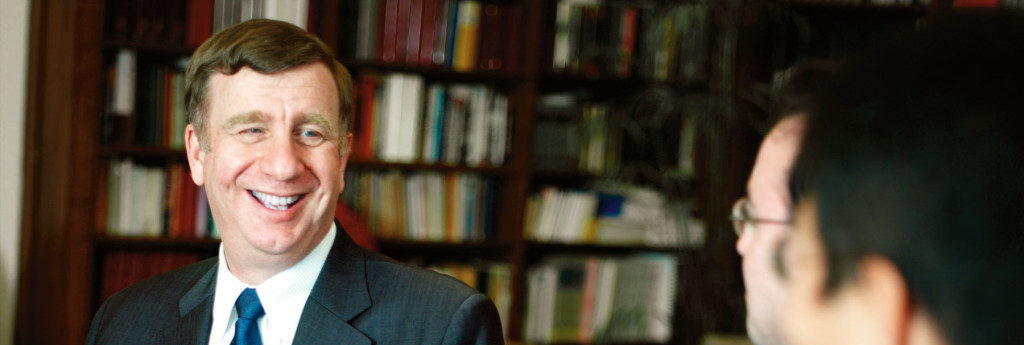Hu Xiaoqian
LL.M.’12 and S.J.D.’19 Harvard Law School
Associate Professor of Law, University of Arizona James E. Rogers College of Law
When Harvard Law Today announced in August that Professor William Alford had completed his 18-year tenure as Vice Dean for the Graduate Program and International Legal Studies at Harvard Law School (HLS), there was an outpouring of thanks and congratulations in the global community of China law studies. This exuberant sentiment testifies how much the community appreciates his leadership and how excited we all are to have the legal scholar William Alford fully back again.
As Vice Dean, Professor Alford helped transform the lives of many people. I was one of them. He convinced me to come to Harvard to pursue further studies of law, particularly of Chinese law. During the subsequent years I cannot count the times in which he tirelessly read my drafty writing―drafts of the LL.M. thesis, of conference papers, of colloquium speeches, of fellowship proposals, of research agendas, of fieldwork reports, of the job talk paper, and lastly, of the S.J.D. dissertation. Thousands of pages of reading and commenting, just for one student! His comments were always thoughtful and perceptive, and his edits (Yes, he edited my writing too!) were strategically allocated to maximize impact and minimize embarrassment. I also cannot count the times in which he discussed my research plans, wrote letters of recommendation for my applications, introduced me to leading and emerging scholars in the field, and in numerous other ways supported me as I pursued my academic dream.
At and beyond HLS, Professor Alford is known for his grace, geniality, and unrestrictive style of mentorship. As his mentee, however, I can testify that while he gives junior scholars maximum space to form our own thoughts, when he sees a serious flaw in our analysis, he can be a formidable critic. Unexpected (and intimidating) as these moments might feel to a mentee, these are also moments that help us grow tremendously. His critique can be as mighty as a mountain; yet, only when you climb with him up to the top can you see the view that he hoped you would see. And that climbing will make a world of difference. Among all the things he did for me at HLS, critiquing my work was the one for which I am the most grateful.
Like students anywhere, graduate students at HLS would hang together and sometimes gossip about life and professors at HLS. (Yes, we do!) We wondered how Professor Alford managed to teach, mentor, read, write, and lead three demanding programs―all at the same time. We concluded, jokingly but with sincere admiration and awe, that he must either not sleep at all, or have more than 24 hours a day or 7 days a week. How else could he possibly do it all?
As disorienting, disturbing, and disheartening as our times are, I am grateful that the academic community is receiving the full return of a powerful voice, a thinker with deep knowledge about China, the United States, and the international legal order. I cannot wait to see Professor Alford continue to illuminate us as we try to understand and improve our times.

